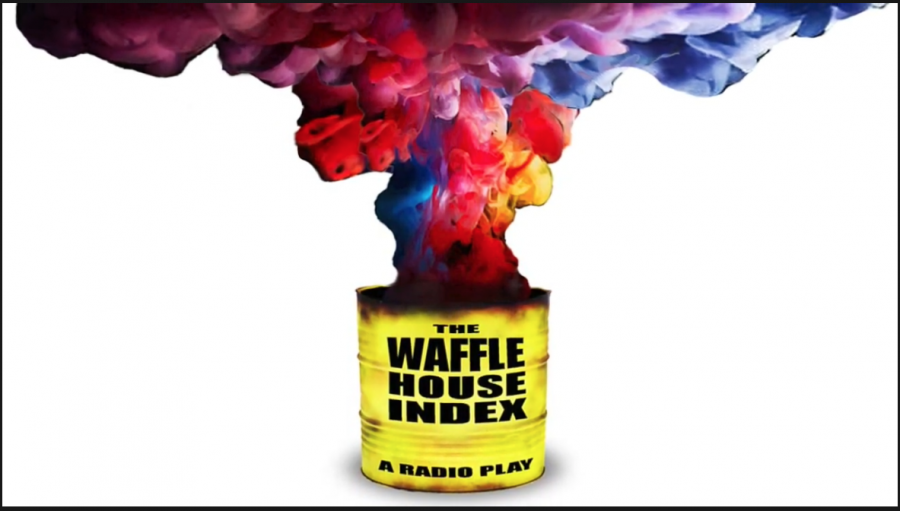Hindered by Covid restrictions, AHS Theatre goes old school with radio play
When Covid-19 sent the world into confusion and disorganization, students in the theatre department wondered how they would perform this year. Corey Cox, theatre teacher, and Lynne Varelans, tech theatre teacher, had an answer to that solution in the form of a radio play. Like the shows that were played over the radio back in the 1920s, Cox, Varelans and their students put together a radio play and posted it on YouTube. The Colt sat down with both Cox and Varelans to find out more.
The Colt: Where did you get the idea for a radio play?
Corey Cox: It was Mrs. V’s idea. She actually got inspired by listening to the old-time radio shows with the doomsday like the end of the world, and she thought it would be cool to bring that to a virtual setting and modernize it.
Lynne Varelans: I got the idea because of Covid. Mr. Cox and I had a lot of conversations about how to handle this year since we weren’t allowed to do performances. I was looking at what other institutions were doing, and I thought that the idea of a radio play was brilliant.
TC: How is this radio play going to work?
CC: The cast members all say different lines, then the editing teams find what lines work the best and they kind of mash it all together. They make sure that one voice is going to react properly with the next voice.
LV: We are going to post this on YouTube, and then have the on our website that will take viewers to the recording of the play. Visually we will have a scrolling visual of pictures from production with the radio play attached to it. It will also be free of charge.
TC: What is the radio play about?
CC: It is about these random people who are in a Waffle House and a nuclear bomb goes off. So, the whole world goes into a doomsday scenario and they are all survivors held up in a Waffle House. But there has also been a murder inside the Waffle House. It’s kind of like a Clue mystery setting.
TC: How has Covid-19 affected the production of the play?
CC: It has made things more tricky. We couldn’t originally meet in person, we had to do everything virtually, but we were very lucky that we got to record in person. Because working virtually brought connection issues, you don’t have the connection you would usually build with an actor. We also ran into some obstacles with trying to learn how to produce this radio show, it’s a learning curve.
TC: Do you think this is a good alternative to actual plays?
LV: It is a whole different way of thinking for our students as the actors and the technicians. It is a total pivot to what they are used to doing. The actors have had to rely on telling the story using their voice.
TC: How will Covid-19 affect the production of plays going into the future?
LV: We are definitely looking into if this radio play experience is successful, and maybe doing something that the students produce. We are still discussing what all of this is going to look like with the current climate of Covid.
CC: We are still scheduled for our One Act play and hopefully we will be able to do a show in the spring.
TC: Do you like this form of play or an actual play?
CC: I prefer live shows 100%. I love live theatre a lot, I think it’s very special and unique. It only happens once and you can’t recreate [it]. That’s what so different between movies or anything that’s been prerecorded. With live performances you are getting something organic, and you’re getting to experience what no one else will get to experience except the people in the room.
LV: If we could just go back to doing shows I would be so happy! There’s nothing like the camaraderie, collaboration, and teamwork that a full-scale production brings to everyone.

